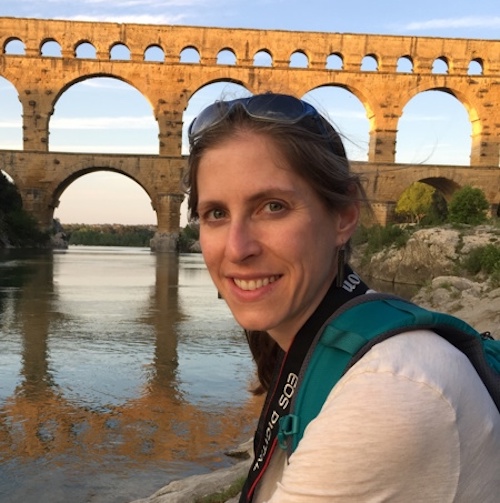Michigan State University will have two sustainability scholars on a prestigious National Academies committee tasked with identifying the best ways to understand the biological world – integrating both the studies of the very small and specific to sweeping exploration at a continental scale.
Jianguo “Jack” Liu, University Distinguished Professor and Rachel Carson Chair in Sustainability in the department of fisheries and wildlife will chair the Continental Scale Biology Committee. Phoebe Zarnetske, an associate professor of spatial and community ecology in the department of integrative biology, is a committee member. Both are members of MSU’s Ecology, Evolution and Behavior Program.
The effort, Research at Multiple Scales: A Vision for Continental Scale Biology of the National Academies of Sciences, Engineering, and Medicine will conduct a consensus study to identify important themes and theory for biological research connecting micro to macro scales and describe how such research would most effectively be structured. This study will explore pathways to realizing the promise of continental-scale biology, building on National Science Foundation initiatives.
The study combines the reintegration of biology with a vision for biology conducted at continental scales.
"The inclusion of two MSU researchers on this committee of 12, with Professor Liu as chair, speaks volumes about the national prominence of our environmental science program,” said Douglas A. Gage, vice president for research and innovation. “I am confident that professors Liu and Zarnetske will make important contributions as we begin an important effort to study biology at a continental-scale. This new approach, building on a number of NSF initiatives, will be critical to a better understanding regional and very large-scale impacts of climate change."
Liu, director of MSU's Center for Systems Integration and Sustainability, has conducted cutting-edge research across multiple scales (local to global) through integrating theories, methods, and data from approximately three dozen diverse disciplines (e.g., natural sciences, social sciences, policy, and technology). He was a coordinating lead author of the influential global assessment report on biodiversity and ecosystem services organized by the Intergovernmental Platform on Biodiversity and Ecosystem Services, which was approved by 132 countries in 2019. His pioneering work on telecoupling has become a research priority by the Global Land Programme. He also has made significant scholarly contributions in developing and operationalizing an integrated framework for achieving the United Nations’ Sustainable Developmental Goals around the world.
Zarnetske is the director of the Institute for Biodiversity, Ecology, Evolution, and Macrosystems. She co-leads the NSF-funded Climate Intervention Biology Working Group, bringing together experts in climate science and ecology to research the potential ecological impacts from climate intervention. Her research on climate change ecology has elucidated important roles of biotic interactions among species, and how these interactions can exacerbate the impacts of climate change on biodiversity. Zarnetske’s research integrates insights from climate change experiments with macrosystems science and modeling of big data in ecology across spatial scales.
Specifically, the committee will identify and discuss:
- Practices that have been used successfully to translate knowledge, approaches, and tools from small-scale biological research to regional- and continental-scale, and vice versa. For example, how might understanding fine-scale biological discoveries alter specific measurements or experiments that researchers undertake at larger scales and vice versa?
- Challenges that prevent uptake of these practices.
- Specific research questions that could serve as pilots for implementing research projects that integrate one or more successful practices.
Finally, the committee will review and refine the practices and questions into a set of recommendations for the research community, funders, and decision makers.
This story originally appeared on the College of Agriculture and Natural Resources website.

